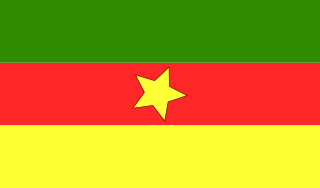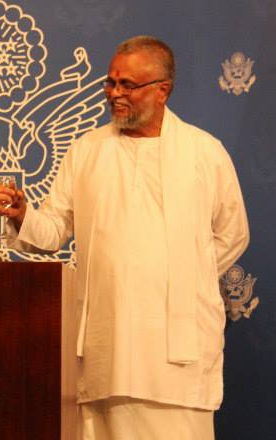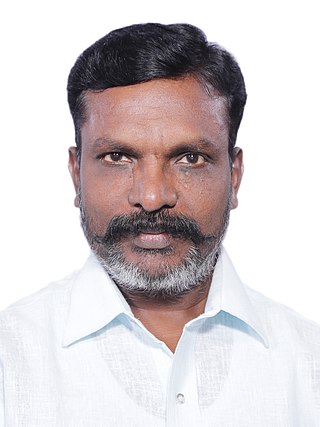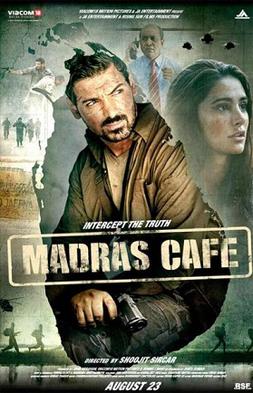
The Liberation Tigers of Tamil Eelam was a Tamil militant organization, that was based in the northern and eastern Sri Lanka. The LTTE fought to create an independent Tamil state called Tamil Eelam in the northeast of the island in response to violent persecution and discriminatory policies against Sri Lankan Tamils by the Sinhalese-dominated Sri Lankan Government.

The Sri Lankan civil war was a civil war fought in Sri Lanka from 1983 to 2009. Beginning on 23 July 1983, it was an intermittent insurgency against the government by the Liberation Tigers of Tamil Eelam led by Velupillai Prabhakaran. The LTTE fought to create an independent Tamil state called Tamil Eelam in the north-east of the island, due to the continuous discrimination and violent persecution against Sri Lankan Tamils by the Sinhalese-dominated Sri Lanka government.

Velupillai Prabhakaran was a Tamil revolutionary. Prabhakaran was a major figure of Tamil nationalism, and the founder and leader of the Liberation Tigers of Tamil Eelam (LTTE). The LTTE was a militant organization that sought to create an independent Tamil state in the north and east of Sri Lanka in reaction to the oppression of the country's Tamil population by the Sri Lankan government. Under his direction, the LTTE undertook a military campaign against the Sri Lankan government for more than 25 years.
The Indo-Sri Lanka Peace Accord was an accord signed in Colombo on 29 July 1987, between Indian Prime Minister Rajiv Gandhi and Sri Lankan President J. R. Jayewardene. The accord was expected to resolve the Sri Lankan Civil War by enabling the thirteenth Amendment to the Constitution of Sri Lanka and the Provincial Councils Act of 1987. Under the terms of the agreement, Colombo agreed to a devolution of power to the provinces, the Sri Lankan troops were to be withdrawn to their barracks in the north and the Tamil rebels were to surrender their arms.

The Eelam People's Democratic Party (EPDP) is a Sri Lankan political party and a pro-government paramilitary organization. It is led by its founder Douglas Devananda.

Vaiko, birth name Vaiyapuri Gopalsamy, is an Indian politician. He is a member of the Rajya Sabha, the upper house of the Parliament of India from Tamil Nadu. He is the founder and General Secretary of the Marumalarchi Dravida Munnetra Kazhagam (MDMK), a political party active mainly in the Indian state of Tamil Nadu. He was earlier elected to the Lok Sabha, the lower house of the Parliament of India from Sivakasi, Tamil Nadu.

Kathiravelu Nythiananda Devananda, commonly known as Douglas Devananda, is a Sri Lankan Tamil politician, Cabinet Minister and leader of the Eelam People's Democratic Party. Originally a Sri Lanka Tamil militant who fought against the Sri Lankan government for an independent Tamil Eelam, he became a pro-government paramilitary leader and politician. Due to his strong opposition to and vocal criticism of the rebel Liberation Tigers of Tamil Eelam, they unsuccessfully tried to assassinate him over 10 times. Devananda is a proclaimed offender in India and is wanted on charges of murder, attempt to murder, rioting, unlawful assembly and kidnapping. He was sworn in as Minister of Fisheries and Aquatic Resources on 22 November 2019.

Tamil Eelam is a proposed independent state that many Tamils in Sri Lanka and the Eelam Tamil diaspora aspire to create in the north and east of Sri Lanka. Large sections of the North-East were under de facto control of the Liberation Tigers of Tamil Eelam (LTTE) for most of the 1990s–2000s during the Sri Lankan Civil War. Tamil Eelam, although encompassing the traditional homelands of Eelam Tamils, does not have official status or recognition by world states. The name is derived from the ancient Tamil name for Sri Lanka, Eelam.
Jaffna International Airport, formerly known as Palaly Airport and Jaffna Airport, is an international airport serving northern Sri Lanka. It was also a military airbase known as Sri Lanka Air Force Palaly or SLAF Palaly. The airport is located in the town of Palaly near Kankesanthurai, 7 nautical miles north of the city of Jaffna. It is at an elevation of 10 m (34 ft) and has one runway designated 05/23 with an asphalt surface measuring 1,400 by 30 metres.

Tholkappiyan Thirumavalavan, better known as Thol. Thirumavalavan is a political leader, scholar and activist from the southern Indian state of Tamil Nadu. He is a Member of Parliament from Chidambaram. Leader and President of Viduthalai Chiruthaigal Katchi. He rose to prominence in the 1990s as a bahujan leader, and formally entered politics in 1999. His political platform centres on ending caste-based discrimination and consequently the caste system. He has also expressed support for Tamil nationalist movements in Sri Lanka.

Tamil nationalism is the ideology which asserts that the Tamil people constitute a nation and promotes the cultural unity of Tamil people. Tamil nationalism is primarily a secular nationalism, that focus on language and homeland. It expresses itself in the form of linguistic purism, linguistic nationalism, Social equality and Tamil Renaissance.

The Northern Province is one of the nine provinces of Sri Lanka. The province has an area of 8,884 km2, making it the 3rd largest province by area, and a population of 1,061,315, making it the least populated province. Jaffna is the capital city of the province.
Sri Lankan Tamils in India mainly refer to Tamil people of Sri Lankan origin in India and non-resident Sri Lankan Tamil. They are partly who migrated to India and their descendants and mostly refugees from Sri Lanka because of the concluded Sri Lankan Civil War. In general socio economically they are living below poverty line, except few people who settled in India during early times, rich businessmen, and professionals. In Tamil Nadu they are also known as Ceylon Tamils or Jaffna Tamils.
Sri Lankans in India mainly refer to Tamil people of Sri Lankan origin in India and non resident Sri Lankans. They are partly who migrated to India and their descendants and mostly refugees from Sri Lanka because of the recently concluded Sri Lankan Civil War. There is also a small population of Sinhalese people in India, numbering about 3,500 and mostly located in Delhi and Chennai. 57 Sri Lankans have become Indian citizens through naturalization since 2017. According to records with the Union Ministry of Home Affairs, as on January 1,2021, there were 58,843 Sri Lankan refugees staying in 108 refugee camps in Tamil Nadu and 54 in Odisha.
The Indian intervention in the Sri Lankan civil war was the deployment of the Indian Peace Keeping Force in Sri Lanka intended to perform a peacekeeping role. The deployment followed the Indo-Sri Lankan Accord between India and Sri Lanka of 1987 which was intended to end the Sri Lankan civil war between separatist Sri Lankan Tamil nationalists, principally the Liberation Tigers of Tamil Eelam (LTTE), and the Sri Lankan Military.

Madras Cafe is a 2013 Indian Hindi-language political action thriller film directed by Shoojit Sircar and starring John Abraham, Nargis Fakhri with Raashi Khanna in lead roles. The film is set in the late 1980s and early 1990s, during the time of Indian intervention in the Sri Lankan civil war and assassination of Indian prime minister Rajiv Gandhi. The film deals with an Indian Army special officer who is appointed by the intelligence agency R&AW to head covert operations in Jaffna shortly after Indian peace-keeping force was forced to withdraw.

Antonythasan Jesuthasan, also known by the pseudonym Shobasakthi, is a Sri Lankan Tamil author and actor.
Porkalathil Oru Poo is an unreleased Indian Tamil-language film directed by K Ganeshan. It is based on the life of Isaipriya also known as "Lieutenant Colonel Issei Piriya", a journalist and television broadcaster for the rebel Liberation Tigers of Tamil Eelam. It was planned to be released in 2015 but was banned by the Censor Board as it would damage India–Sri Lanka relations.
Contributions to popular culture involving direct reference to the Sri Lankan Tamil community in Indian cinema are listed below. All communities that speak Tamil and originally came from Sri Lanka are included. Tamils of Sri Lanka today are a trans-national minority and are found across the globe. While most films on the topic are made in Tamil cinema, there has also been Malayalam and Hindi content on the area.












